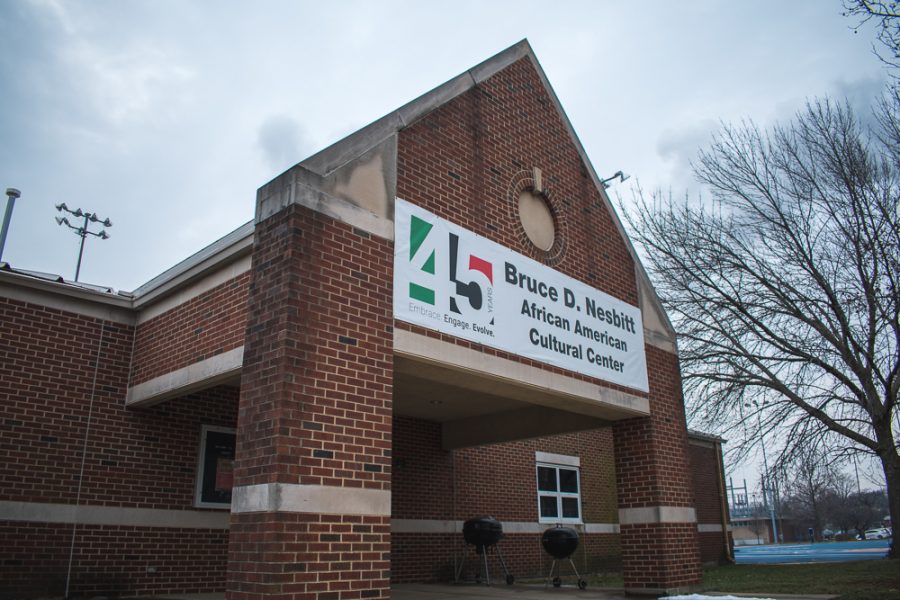Organizations work toward black self-determination during BHM
A photo of The Bruce D. Nesbitt African American Cultural Center on Campus. The center is located at 51 E Gregory Dr. in Champaign.
Feb 12, 2018
Black organizations in the local community are hoping to build political consciousness and celebrate Black culture during Black History Month.
The Bruce D. Nesbitt African American Cultural Center is hosting 17 events, including a meet and greet with Black faculty and administrators and a discussion on eating disorders among Black students, said Nathan Stephens, director of the cultural center.
“Celebrating Black culture affirms the identity of students that are members of the African diaspora,” Stephens said. “It’s beyond political correctness. It really enhances your understanding and your ability to relate to one another.”
Shameem Razack, co-organizer of Black Lives Matter Champaign-Urbana, said by celebrating Black culture, Black History Month also provides an opportunity to politically educate and uplift Black communities.
“A lot of times in society, Black people are not acknowledged, so this is just a space to uplift each other and celebrate ourselves,” she said.
Get The Daily Illini in your inbox!
This celebration of Black culture needs to go hand in hand with discussions of Black politics, said Kurtis Ture, co-organizer of Black Students for Revolution.
“We can’t separate politics from economics. We have to remember the central reason Black people were brought to this country was to be used as a free labor source,” he said. “Now Black people in this country (still) hold a place outside of the economic mainstream.”
Ture said celebrating Black culture is important because it fuels the political fight for liberation and self-determination.
“On a political and economic level, Black people do not have the power to direct their own affairs or control their access to resources,” Ture said.
Razack said it is important to look at the root causes of the oppression and disenfranchisement of Black communities.
“One of the main causes is capitalism; it’s caused so much of oppression around the world, especially in the United States,” she said. “This country has had its money and corporations built off the backs of black and brown bodies.”
Black Students for Revolution encourages Black students to fight for more control over how institutions like Bruce D. Nesbitt African American Cultural Center and the African- American studies department are run, Ture said.
Ture also said Black Students for Revolution also co-hosting events with the community-based Speak Truth Collective to help bridge the gap between students and the community.
Black Lives Matter C-U is hosting a book drive for books written by Black authors with Black characters. Books can be donated at the Women’s Resources Center, the Independent Media Center or at Bethel African Methodist Episcopal Church.
“(Black History Month) is a time, just like any other time, to talk about Black politics and Black political movements,” Ture said. “It’s something we should do all around the year. Our goal is to raise consciousness while we push for liberation in the long run.”






